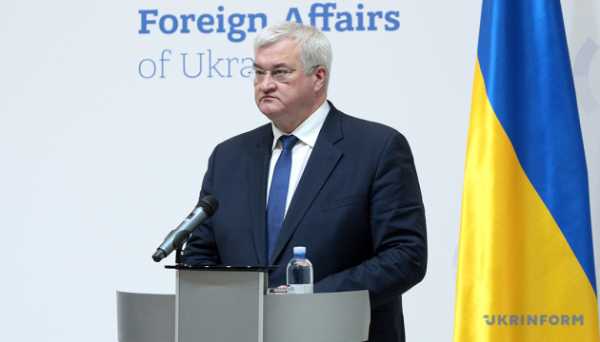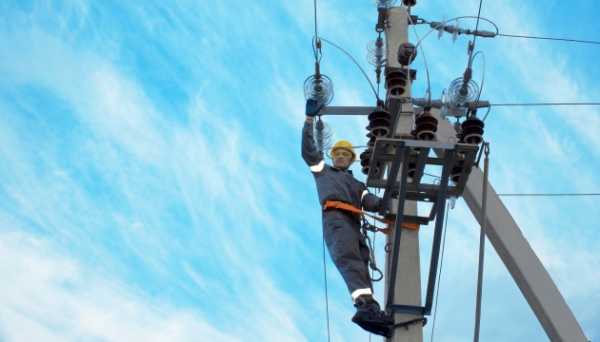Latest news for today in Ukraine

The toughened quarantine restrictions introduced in January in Ukraine do not have a direct impact on the work of machine-building enterprises. However, due to budget savings, customers reduce orders and do not always pay for products on time, enterprises interviewed by Interfax-Ukraine have reported.
"Since we produce personal respiratory protection equipment, quarantine restrictions do not have a very strong impact: mines must function, and it is forbidden to go underground without self-rescuers. However, some companies are reviewing investment budgets and are not updating their fleet, for example, individual self-contained respirators for mine rescuers, or devices for checking and adjusting respirators. They decide to simply repair them. Therefore, there is a decline in sales, but it is insignificant," Board Chairman of DEZEGA, which produces respiratory protective equipment for the Ukrainian market at a plant in Turkey, Anton Sakovych said.
He said that DEZEGA is trying to cover this decline with growth in other markets or with other products.
Concerning the issue of the supply of components (including taking into account the restrictions imposed in other supplying countries), Sakovych said that there are occasional delays.
"But we have buffers for continuous production, as well as the ability to speed up delivery through faster but expensive logistics. We took a number of anti-crisis measures at the beginning of the pandemic to eliminate production disruptions, and at the moment this is yielding results," he said.
In turn, Marketing Director of JSC Dneprotyazhmash Vyacheslav Pronsky told Interfax-Ukraine that the lockdown itself does not affect the operation of the enterprise, but taking into account the impact on the economy, the problems noted in the spring lockdown of 2020 persist: a decline in orders, decrease in prices and high degree of uncertainty.
At the same time, according to him, this list was expanded in December by a rapid (for some items more than 50%) rise in prices for basic materials and components (cast iron, steel and cast iron scrap, rolled metal, ferroalloys, molding materials), as well as for energy resources.
"Unfortunately, our market has a certain inertia, and customers are not yet ready for the same (in percentage) increase in prices for our products. In addition, it usually takes several months from the moment of agreeing the price of products to the start of production and at the time of purchasing materials it is no longer possible to revise the agreed price," Pronsky said.
In addition, he noted the untimely receipt of funds among the factors of affecting production.
"On the one hand, the first half of January is traditionally a "low season" in this regard. On the other hand, in order to maintain a higher price, we often agree to a longer payment deferral, and this leads to a shortage of working capital, in particular, which we feel in January," the marketing director said.
However, he said, today we can already see the loading of production with orders, tentatively, until the end of March, and there are grounds for receiving a number of large orders, which will make it possible to load Dneprotyazhmash more evenly and more fully for the entire year.
Meanwhile, the largest car-building enterprise in Ukraine – Kriukov Car Building Works (KCBW, Kremenchuk, Poltava region) – decided not to work during the lockdown period (while retaining part of the wages).
"The enterprise in January, during the lockdown period, does not work, including taking into account the fact that January is traditionally a difficult month, and in January of this year, the situation is aggravated by the lack of orders for cars and the general critical situation in the car building of Ukraine," the enterprise said.
Oleksandr Sokolovsky, the owner of the Textile-Contact group, a member of the presidium of the Council of the Federation of Employers of Ukraine, considers the restrictions introduced in January to be critical for the situation in the light industry.
The lockdown to prevent COVID-19 introduced by the government until January 24 is a "killer" for light industry enterprises, and for this reason alone, the production of goods will fall by at least 10%. Last year's lockdown in April alone gave a 40% drop in production for light industry, and at the end of the year it was 10%. And now we will be knocked down by dead January, and there will be a decline of 10% in 2021, and this is a reduction of at least 10,000 jobs in the industry," he said, adding that due to the drop in sales everyone will suffer in the chain: garment workers, shoe makers, manufacturers of fabrics, lingerie and home textiles.
At the same time, he recalled that January is already the most difficult month, when trade traditionally sinks, and rent, wages and utility bills have to be paid.
"I really want to keep the team of professionals who have been brought up with such difficulty, but it will be extremely difficult to do this after the lockdown," Sokolovsky said.
Source: www.en.interfax.com.ua



